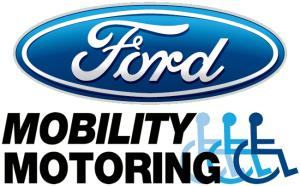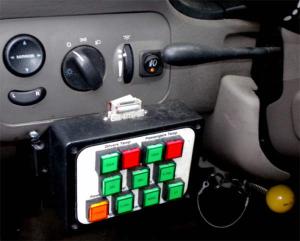Wait … Just Before You Do a Vehicle Conversion
There are many things to consider before you adapt a vehicle for wheelchair or handicap access. While financial considerations are just one element to consider, in most cases, it is a big one and there are various ways that vehicle modifications can affect your financial picture.
Manufacturer Rebates and Reimbursements
 Vehicle modifications are expensive and most people need all the help they can get financing these modifications. To that end, it is wise to look at the entire situation before you begin so that you can ensure you are making the best financial decisions possible.
Vehicle modifications are expensive and most people need all the help they can get financing these modifications. To that end, it is wise to look at the entire situation before you begin so that you can ensure you are making the best financial decisions possible.
For example, some manufacturers offer rebates on modified equipment–provided the equipment meets certain criteria. Some manufacturers have a list of eligible aftermarket modifications on their websites so that consumers can be aware ahead of time which modifications may qualify for discounts or rebates.
One of the most important things to keep in mind in order to qualify for reimbursements, rebates, and any other funding is that a licensed equipment installer must install the modification equipment. This is also an important point to keep in mind for other reasons as well, including preserving any warranties associated with your equipment and for your safety.
Some manufacturers will reimburse a certain portion of the costs associated with transferring modification equipment from your vehicle into a new vehicle. This can be extremely helpful when contemplating the purchase of a new vehicle because even if you already have the equipment, uninstalling it from one vehicle and reinstalling it into another can be costly.
If you are able to alleviate even a portion of those costs, it may make the difference between whether you can realistically afford to purchase a new vehicle or if you have to keep your old one for a while longer.
Consider Used Mobility Equipment
 Keep in mind, also, that some used modification equipment may also qualify you for reimbursements or rebates. Again, the key is to make sure that you purchase your equipment from a licensed dealer and have it installed by a licensed equipment installer. Buying used can save you a lot of money in the long run and used equipment is still eligible for many of the reimbursement programs that new equipment is so it pays to shop around.
Keep in mind, also, that some used modification equipment may also qualify you for reimbursements or rebates. Again, the key is to make sure that you purchase your equipment from a licensed dealer and have it installed by a licensed equipment installer. Buying used can save you a lot of money in the long run and used equipment is still eligible for many of the reimbursement programs that new equipment is so it pays to shop around.
Other Ways to Save
 There may be other ways, aside from programs sponsored by vehicle manufacturers, that you can save on the cost of modifying your vehicle. There may be federal income tax credits or deductions that you can take that will help you to bear the costs associated with vehicular modifications.
There may be other ways, aside from programs sponsored by vehicle manufacturers, that you can save on the cost of modifying your vehicle. There may be federal income tax credits or deductions that you can take that will help you to bear the costs associated with vehicular modifications.
It is also possible that you could secure partial funding through state agencies, such as those associated with rehabilitation. For those with private insurance, check with your insurance company to see what funding, if any, is available.
While there are various disability resources available to assist with the costs associated with vehicular modifications, they all have their own set of criteria that must be met in order for funding to be available. That is why it is so important to look at all your options before you start the modification process.
You may find that the savings are substantial, whether you are modifying an existing vehicle or transferring your equipment to a newer one. If you find that new equipment is outside the boundaries of your budget, even with assistance, do not discount used equipment. In many cases, those used elements have not actually been subjected to much wear or tear.
Once you have looked at all of your options and secured the funding for the vehicle modifications you require, you will want to find a licensed installer that with whom you can do business. Although it can be a daunting process, going through the steps one at a time can make it seem less overwhelming and the end result could provide a means for you to assert your independence in a safe and modified vehicle.
















